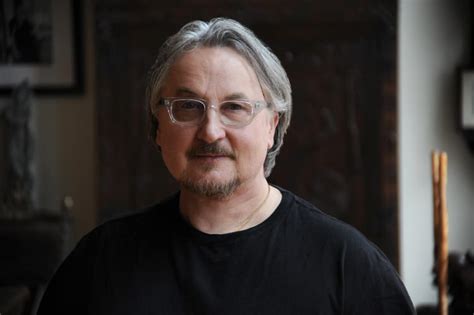A Quote by E. O. Wilson
Now when you cut a forest, an ancient forest in particular, you are not just removing a lot of big trees and a few birds fluttering around in the canopy. You are drastically imperiling a vast array of species within a few square miles of you. The number of these species may go to tens of thousands. Many of them are still unknown to science, and science has not yet discovered the key role undoubtedly played in the maintenance of that ecosystem, as in the case of fungi, microorganisms, and many of the insects.
Quote Topics
Ancient
Around
Array
Big
Birds
Canopy
Case
Cut
Discovered
Ecosystem
Few
Fluttering
Forest
Fungi
Go
Insects
Just
Key
Lot
Maintenance
Many
May
Microorganisms
Miles
Now
Number
Particular
Played
Role
Science
Species
Square
Still
Tens
Tens Of Thousands
Them
Thousands
Trees
Undoubtedly
Unknown
Vast
Within
Related Quotes
It is now many years that men have resorted to the forest for fuel and the materials of the arts: the New Englander and the New Hollander, the Parisian and the Celt, the farmer and Robin Hood, Goody Blake and Harry Gill; in most parts of the world, the prince and the peasant, the scholar and the savage, equally require still a few sticks from the forest to warm them and cook their food. Neither could I do without them.
Without birds to feed on them, the insects would multiply catastrophically. The insects, not man or other proud species, are really the only ones fitted for survival in the nuclear age. The cockroach, a venerable and hardy species, will take over the habitats of the foolish humans, and compete only with other insects or bacteria.
The big question that scientists haven't even begun to get an answer for is how many species of microorganisms are there? Now, this is not stamp collecting. What we need is experts totally devoting their research to everything they can find out about every species, in a community of scientists who appreciate that every fact counts...everything new you learn about any species in any group is worth publishing somewhere.
Researchers keep identifying new species, but they have no idea about the life cycle of a given species or its other hosts. They cut open an animal and find a new species. Where did it come from? What effect does it have on its host? What is its next host? They don't know and they don't have time to find out, because there are too many other species waiting to be discovered and described.
Most people are surprised when they hear my somber figures: we know of 2 million species of plants, animals and microorganisms, and we can give them each a scientific name and a diagnostic description. We know, perhaps generously, more than just a little bit of the anatomy in no more than 10 percent. We have done thorough studies in fewer than one-tenth of 1 percent. And the total number of species on Earth is unknown to the nearest order of magnitude.
There are many ways to make the most of your time on the planet, and propagation of the species is just one of them. If you're convinced that it's the key to your happiness, there are routes open to you, whether with the help of modern medical science, marrying into a readymade one, or through fostering and adoption.

































